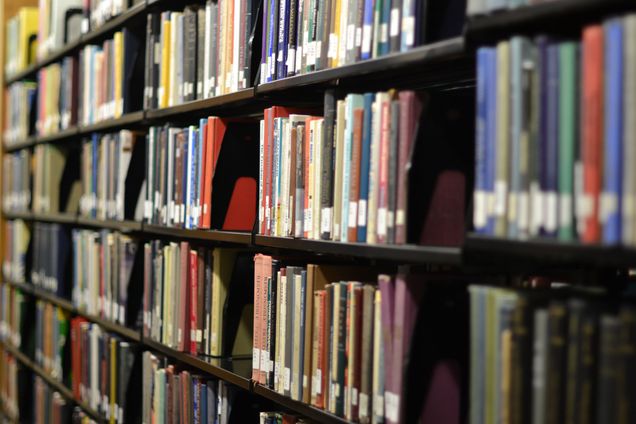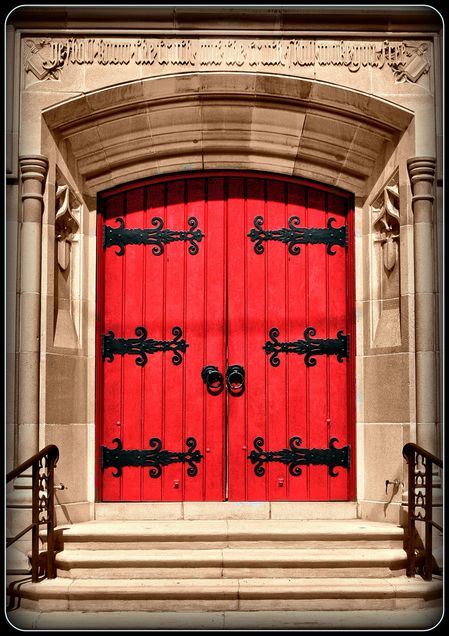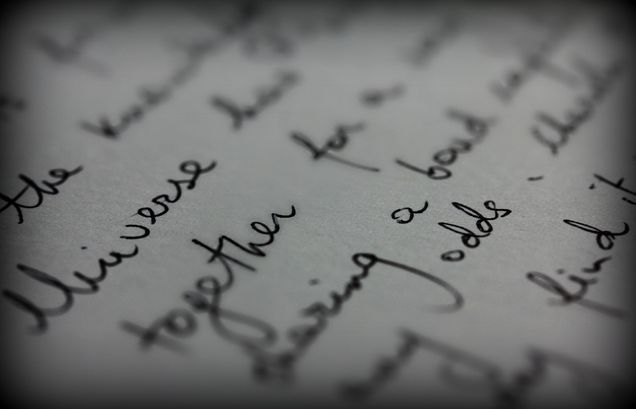Why a Librarian is Your Paper’s Best Friend

October is Theological Libraries Month?
Why is there a whole month dedicated to the library of all places? All you do there is read books, make some photocopies, and catch a few zzz’s. The library can’t offer you anything that you can’t find on the web or from your professor, right?
Wrong.
You’ve forgotten about your librarians and talking to a librarian can mean the difference between a good paper and a great paper.
Here are just a few ways they can help you succeed in your research or academic work.
1. Define and/or refine your research topic
Asking the right question, or questions, is a good first step in developing a research topic. You may want to write a paper on the relationship between Islam and Christianity, but unless you’re planning to write a multi-volume set, a topic of this size is just too big.
So the librarian might ask you to refine your thinking with questions like, “How long is this paper intended to be?” “What in particular do you want to compare between the two religions?” “Have you gathered any background information already?”
This process is vitally important, especially if you’re just beginning to think about the assignment, because establishing limits allows you to focus on the most important parts of your argument and will streamline your writing.
Your readers, whether they are your professors, your friends, or a professional journal, will thank you for it.
A narrow scope also makes research easier. If you have a strong focus you can more easily decide which bits of research will help your argument and which bits will just seem like fluff.
2. Locate resources using library tools
Once you’ve narrowed your topic to something manageable, you will now be able to identify which resources are relevant to your paper.
Unfortunately, though, you may not be done. There may still be additional resources that you have not uncovered.
It is no surprise that many students rely on Google or Wikipedia to get started with their research. They’re easy to use and access. Librarians use these tools, too!
However, BU subscribes to hundreds of databases that provide access to scholarly resources from peer-reviewed journals edited by eminent scholars (a peer-reviewed journal is a journal in which article submissions are reviewed by scholars in that field to ensure the quality of the research. Magazines such as Time or Newsweek are not peer-reviewed journals).
The more reputable the sources you use, the more convincing your paper will be, so these are the types of resources you should be looking to use.
There are multiple ways to access these peer-reviewed articles, including BU Search or through the list of library databases on the STH Library website. A librarian can show you exactly how to use each of them.
You just have to ask.
3. Utilize primary sources
Primary sources are materials that provide direct evidence or firsthand testimony concerning the period or subject under investigation.
Some examples of these include letters, photographs, diaries, and much more. The School of Theology’s archives contain firsthand accounts of Methodism in New England, accounts and reports in missions, the records of the Boston University’s School of Theology, and many other historical items.
These items can add further depth to your project by revealing details left out of secondary sources (books or articles that discuss primary sources, like the peer-reviewed journals mentioned above). These details can also help to refine your thinking and offer new research opportunities for the future (and impress your professors).
4. Locate items at other Colleges and Universities
It can be frustrating to find a citation or an abstract for an article that looks like it would be perfect for your paper and then discover that your library doesn’t own the journal or the book.
However, your librarian can help you track down those pesky items and get access to them.
For instance, you can use BU WorldCat Local to find out if another local Boston Library Consortium (BLC) library holds the item and request it right from the results screen.
If it is not held by a BLC library, it might still be owned by a Boston Theological Institute (BTI) library. If so, you can get a BTI card from the STH Library Circulation Desk and go to that library and get it yourself.
Only on campus twice a week? Not a problem! You can use interlibrary loan (ILL) services to request an item from another library and have it sent either to your library, or to your e-mail account (if the other library sends an article in an electronic format). Interlibrary loan books and articles may be delivered either in a few days or a few weeks. Please prepare early if you need the resource for an upcoming paper.
Again, you just have to ask, so be sure to stop by the Circulation Desk.
5. Learn different forms of library research
As you may have noticed by now, librarians are teachers, too.
Each semester, the BUSTH library staff provides sessions on using the databases, interlibrary loan, bibliographic managers, and archival research, among other topics.
A trip to the library to discuss your current paper can get you out of dire straits, but learning how to use library resources can make sure you never end up in that frantic position again.
Classes are posted on the library website, Facebook, the STH Calendar, the Library’s Twitter account, and throughout the STH building. If you can’t make a class, feel free to make an appointment with a library staff member and we’ll be glad to assist you one-on-one.
In the meantime, jump in on the comments section and let us know how else we can help you!
James has worked at Boston University as a professional librarian since 2000, joining the School of Theology Library staff as Head of Public Services in 2002. Jim has been an active member of the American Theological Library Association where he has served on the Public Services Interest Group Steering Committee and two theological reference task forces.






